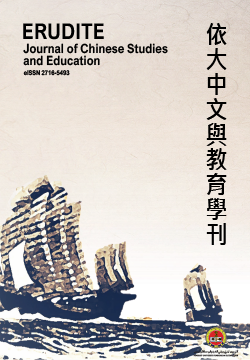“民主的种子”该以什么来灌溉? 读祝家华《朝向儒家德治民主:牟宗三“开出民主论”研究》
A Review on Thock Kiah Wah's Towards the Virtue Democracy of Confucianism
DOI:
https://doi.org/10.37134/erudite.vol1.1.10.2020Keywords:
牟宗三, 儒家民主理论, 德治民主Abstract
在现代化民主与后现代民主思潮的冲击下,祝家华通过儒家思想的德治民主来回应现代化民主政治。以儒家思想中所关注的道德生命,对现代化民主进行批判而超越的检视。祝氏通过研究牟宗三的“道统、政统、学统”的“开出民主论”,重新梳理德治与民主的关系,并且提出“商统”与“互动”的思辨概念来试图建构更为完善的“开出民主论”。除了对学理层面的建构与调整之外,该书亦提供“在地/在场”的视角,而笔者亦试图以此视角,展开观念探索与实践动力的讨论空间。
Abstract
Under the impact of the Ideological trend of modern democracy and post-modern democracy, Thock Kiah Wah responds the modern democratic politics through the virtue democracy of Confucianism. He critics and inspects transcendently the modern democratic politics by the concept of moral life which being emphasized in Confucianism. The research that Thock did on Mou Tsung-san’s concepts of “ethical authority”, “political authority” and “scholars’ authority”, led him re-identifies the relationship between the rule of virtue and democracy. He then proposes the speculative concepts of “commercial authority” and “interactive”, in attempt to optimize Mou’s theory of “Confucian Democracy”. Apart from the construction and revision done in the level of academic theory, the perspectives of the “local” and the “present” that emerged from Thock’s work also inspire the author of this paper to unravel the discussion space of conception exploration and practical motivation.
Keywords: Mou Tsung-san, Confucian Democracy, Virtue Democracy of Confucianism
Downloads
References
Mu Zong-san, "Fifty Self-Narratives", "Mr. Mu Zong-san" Volume 32, Taipei: Union, 2003.
Mu Zong-san, "Political And Governance Road", Taipei: Student Book Bureau, 1987.
Mu Zong III, The Establishment of the Fundamental Principles of Society, Regeneration, Volume 1, No. 11 (March 20, 1933), p. 61.
Yu Yingshi, "JuJi Wind And Water Scales - Qian Mu and Chinese Modern Scholarship", Taipei: Sanmin, 1991.
Xia Yanzhang, "Four Books Today Translation", Jiangxi: Jiangxi People's Press, 1986.
Downloads
Published
How to Cite
Issue
Section
License
Copyright (c) 2020 UPSI Press

This work is licensed under a Creative Commons Attribution-NonCommercial-ShareAlike 4.0 International License.





